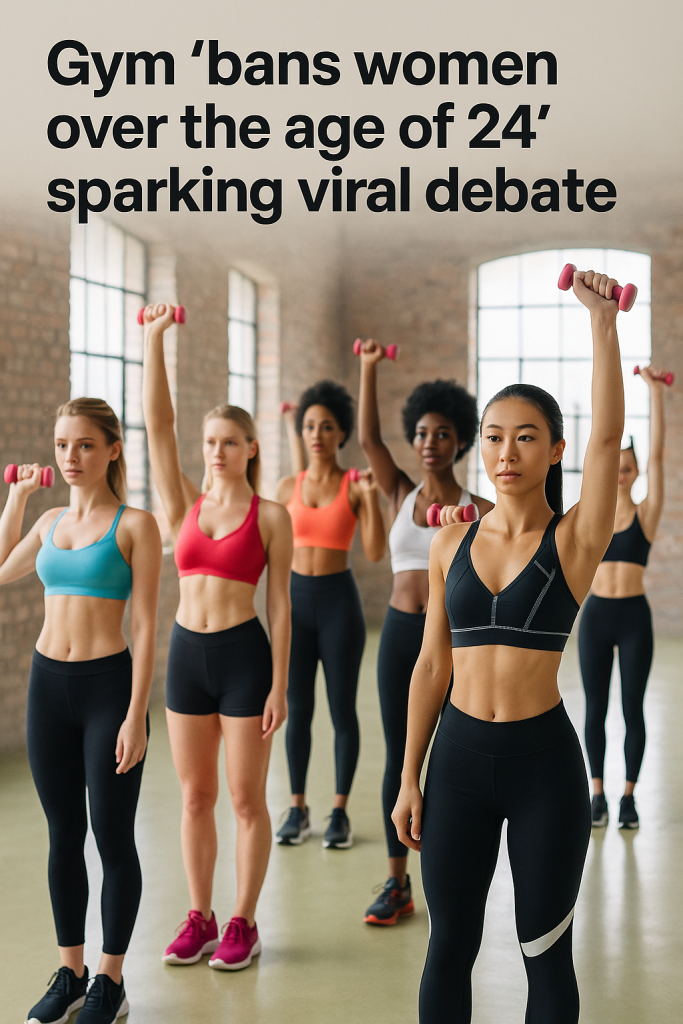A fitness center’s recent decision to restrict membership to women under the age of 25 has ignited a widespread social media debate, raising questions about age discrimination and gender bias in the fitness industry.
The controversial policy reportedly bans women over the age of 24 from joining or continuing membership at the gym, a move that many have called out as discriminatory and exclusionary. The announcement first surfaced through a viral social media post, prompting an intense discussion about the fairness and legality of such age-based restrictions.
The policy and its backlash
According to posts circulating online, the gym implemented this new rule under the premise of creating a “youth-focused environment,” aiming to cater specifically to younger women. However, critics argue that the policy unfairly targets a large demographic of adult women, barring them simply based on age without any consideration of fitness level or commitment.
As the story circulated, hundreds of users expressed outrage, describing the gym’s actions as a blatant form of ageism and gender discrimination. Comments highlighted the absurdity of excluding women who are entirely capable and motivated to pursue fitness goals beyond the age of 24, a period when many people seek to maintain or improve their physical health.
“Fitness should be inclusive, not exclusive. Setting an arbitrary age limit is not only unfair but promotes unhealthy stereotypes about aging,” tweeted one user, capturing a sentiment echoed across various platforms.
Industry response and broader implications
Experts in the fitness industry and legal analysts have weighed in, emphasizing that age-based exclusions in public-facing businesses may violate anti-discrimination laws in many regions. While gyms can target specific markets for business reasons, outright bans based solely on age could prompt legal challenges and damage public reputation.
Fitness professionals also voiced concern that such policies undermine the spirit of wellness and empowerment that many gyms promote. “Gyms are meant to be spaces where people of all ages and backgrounds feel welcome and supported in their health journeys,” said a personal trainer familiar with the controversy. “Policies like this alienate a huge segment of potential members and send the wrong message about fitness and aging.”
Gym’s response and next steps
In response to the backlash, the gym’s management issued a brief statement defending their decision as a marketing strategy aimed at a very specific younger demographic. However, they acknowledged the concerns raised and promised to review the policy with customer feedback in mind.
Meanwhile, social media users have launched online petitions and called for boycotts, encouraging others to support gyms that promote inclusivity regardless of age. The debate continues to gain momentum, highlighting the need for fitness establishments to balance targeted marketing with ethical, inclusive practices.
Conclusion
The controversy surrounding the gym’s ban on women over 24 underscores broader societal tensions about age, gender, and access to health and wellness resources. As the fitness industry evolves, the demand for inclusive policies that embrace people of all ages remains a vital conversation.
In a world where longevity and active lifestyles are increasingly valued, many argue that no one should be excluded from fitness opportunities based on arbitrary age cutoffs.



